In the first post of this series focusing on our recent SoGoStudy about work life today, we provided the demographics and basics of the study. A quick catch-up on the foundation of the study:
- More than half of those who work remotely want to continue to work remotely for the foreseeable future.
- 44 percent of the participants who were employed have been working at their current organization for 10-plus years, with 21 percent working at their organization for one to three years.
This week, we’re going to dive into some of the more surprising insights from our study.
Ready to leave
Out of 91 participants, 45 percent of those who are currently employed (either full-time or part-time) said that they have very seriously considered leaving their job.
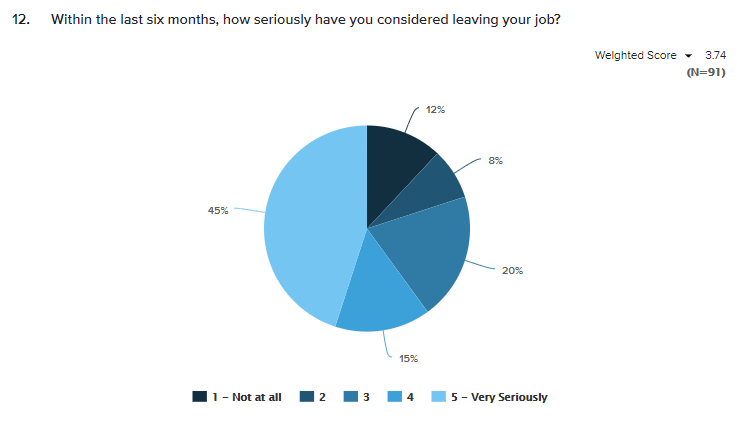
Considering leaving a job and searching for a job are two different things, though. Surprisingly, 38 percent (out of 81 respondents) said that they have not actively looked for a job in the past six months. Only 12 percent said that they very actively looked for another job, with everything in-between coming in around the mid-to-high teens. This suggests that for the people who are seriously thinking about leaving their position and company, not that many have been seriously applying elsewhere.
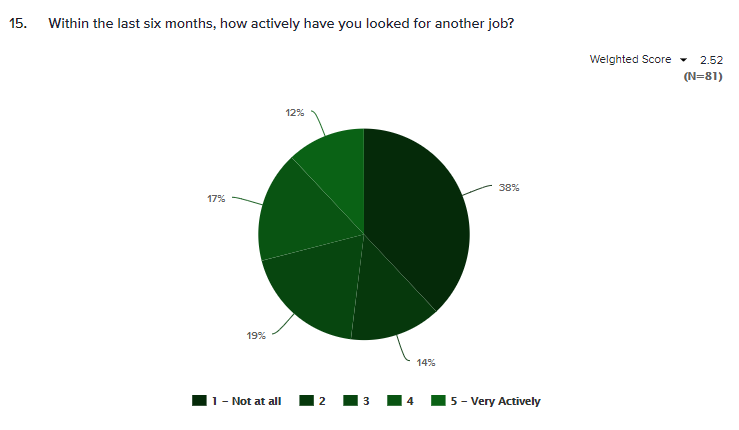
But it’s not that simple. When segmenting this graph even further, it’s clear that the people who said they are seriously thinking about leaving their jobs are also actively looking elsewhere. Of those who chose “Very Seriously”, Very Actively and Actively are tied at 28 percent, with Somewhat Actively coming in at 22 percent. Unsurprisingly, there are still a good number of people — 22 percent — who have been very seriously considering leaving their jobs but haven’t really done much about it.
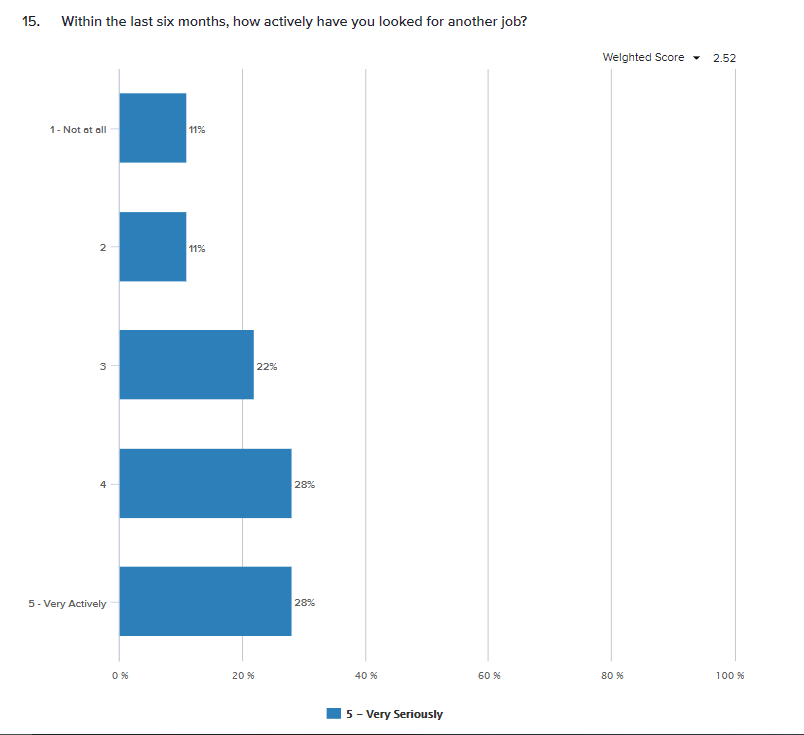
Reasons to leave
The reasons for this sentiment varied. The two most significant reasons are both concerning, with 63 percent of the 72 respondents saying that they were considering leaving their job because of their mental health, with 61 percent identifying being “burned out” as another reason for wanting to leave. Close behind that, about half of the participants are looking for other jobs because they are seeking a better work-life balance. Along with the concerning number of participants who said that their mental health was a reason for seeking other job opportunities, 44 percent of people said that they were seriously looking for other opportunities because of their physical health.
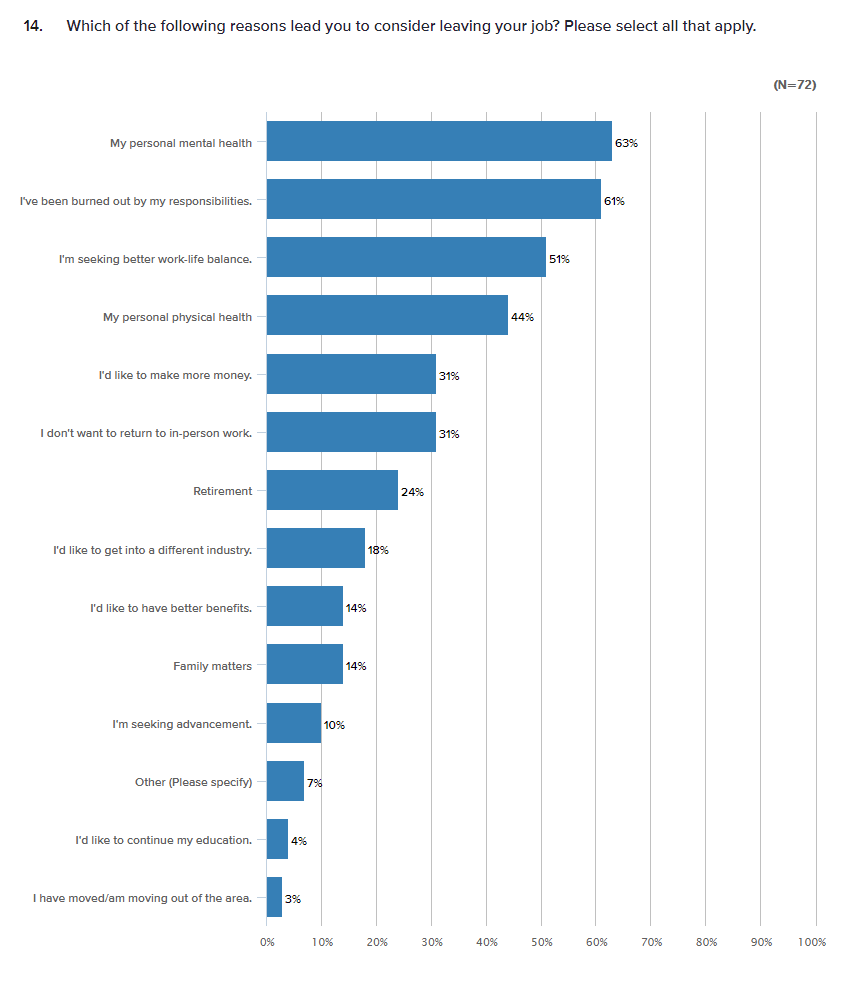
Considering that 59 percent of the participants were ages 57 to 75, it’s not a surprise to see that retirement was one reason for a quarter of the relevant participants. It also explains why only 10 percent of participants said that they are seeking advancement. If a sizable portion of the audience is getting close to retirement, they are not thinking about the next stage of their career — rather, they are looking to wrap it up.
People who don’t want to leave their jobs
We’ve covered a lot about the people who have thought about leaving their job or are actively looking to leave their jobs. What about those who are happy with where they are?
Only 18 of the participants identified reasons for why they would want to stay at their current position, and the reasons are varied.
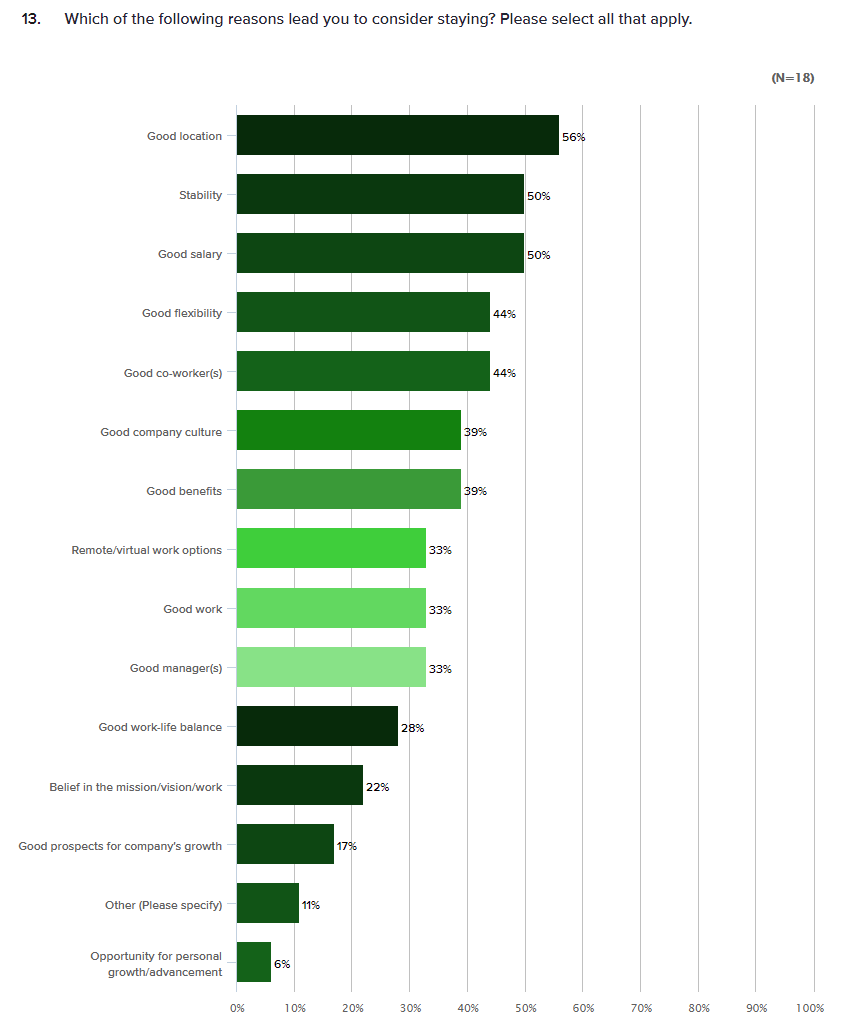
The most popular reasons for wanting to stay with their current employer is because the job is in a good location, has a good salary, or offers stability. Given the uncertainty the pandemic brought on with job security, it’s not surprising that stability and having a good salary are leading reasons for people to stay with their company. Considering the popularity of remote work, it’s interesting that “good location” is a key reason for people to keep their job. But let’s dive into that a bit more. When segmenting the data by those who said that they were able to work remotely, 62 percent said the reason they wanted to stay at their job is because of location, which makes a bit more sense.
Takeaways
To recap, a few high-level takeaways from our study:
- Despite many thinking about leaving their job, not as many are actively applying and looking elsewhere. Only those who have very seriously thought of leaving their job are actively applying to work elsewhere.
- Employees are burnt out, and they want to leave to help improve their physical and mental health.
- Those who want to stay at their job are most satisfied with either the location of their job (work from home), good salary, and/or stability.
For the final blog post about our study, we’ll address the study’s limitations, examine its overall takeaways, and consider its implications














